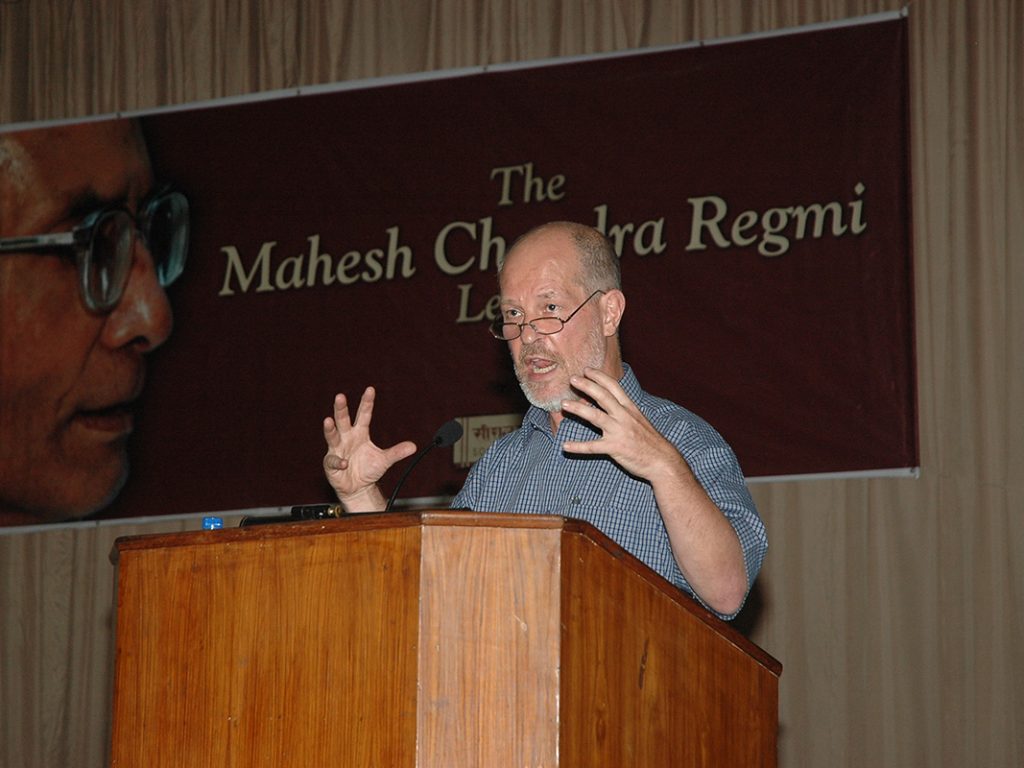Lecture Series
Where Is the Revolution? Towards a Post-National Politics of Social Justice

The Mahesh Chandra Regmi Lecture 2008
12 August, Russian Cultural Centre, Kamalpokhari
Where Is the Revolution? Towards a Post-National Politics of Social Justice
by David Ludden
How should we think about today’s political transition in Nepal? To address this critical question, we need a conceptual framework, and our most popular choice would be to think inside national history, thus to consider the nation from a perspective anchored in the capital. I want to describe another perspective: it is a post-national framework for thinking about the politics of social justice. National thinking appears in rather different light when we step outside, and my work has for some years now focused on mapping analytical spaces that include the nation without being defined by national territorialism.
Nepal’s transition is unfolding inside (1) South Asian regionalism, (2) a growing collection of modern states transformed by rustic revolutions, and (3) contemporary globalisation. These three contexts highlight the role of urban-rural and inter-regional inequity in generating radical politics. Struggles for social justice that originate in deprived places can successfully transmit their energies to the capital—which they do in various ways—but distances remain profound which separate ‘the nation’ defined in the capital from ‘the local’ defined in rustic towns, villages, slums, swamps, mountains, and forests. Local struggles for social justice remain local even when they provide a political basis for radical change in national state regimes. This defines the basic challenge for urbane politicians.
Listen or download lecture in audio format
David Ludden is Professor of Political Economy and Globalisation, New York University. He received his PhD from the University of Pennsylvania in 1978 and was Professor of History there from 1999-2008. His areas of interest are economic development, agrarian conditions, health environments, empire, inequality, social conflict. His monographs are India and South Asia: A Short History (2002), An Agrarian History of South Asia (1999), and Peasant History in South India (1985). His major edited volumes are Capitalism in Asia: Readings from the Journal of Asian Studies (2004) and Reading Subaltern Studies: Critical Histories, Contested Meanings, and the Globalisation of South Asia (2002). He has served as President of the Association for Asian Studies and has received research awards from the John Simon Guggenheim Memorial Foundation (2003), American Council of Learned Societies (2002), and the National Endowment for the Humanities (1990).
